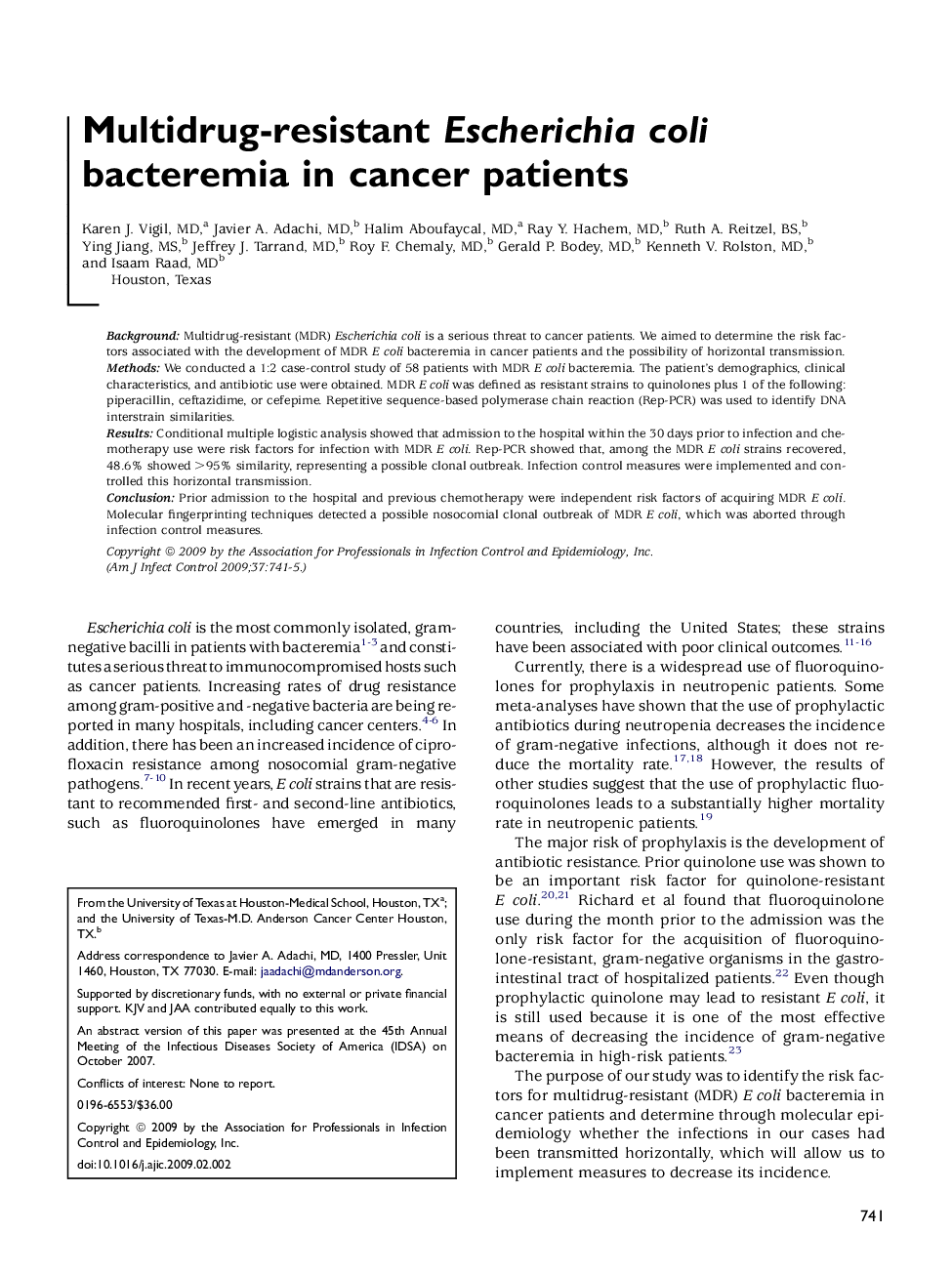| Article ID | Journal | Published Year | Pages | File Type |
|---|---|---|---|---|
| 2640495 | American Journal of Infection Control | 2009 | 5 Pages |
BackgroundMultidrug-resistant (MDR) Escherichia coli is a serious threat to cancer patients. We aimed to determine the risk factors associated with the development of MDR E coli bacteremia in cancer patients and the possibility of horizontal transmission.MethodsWe conducted a 1:2 case-control study of 58 patients with MDR E coli bacteremia. The patient's demographics, clinical characteristics, and antibiotic use were obtained. MDR E coli was defined as resistant strains to quinolones plus 1 of the following: piperacillin, ceftazidime, or cefepime. Repetitive sequence-based polymerase chain reaction (Rep-PCR) was used to identify DNA interstrain similarities.ResultsConditional multiple logistic analysis showed that admission to the hospital within the 30 days prior to infection and chemotherapy use were risk factors for infection with MDR E coli. Rep-PCR showed that, among the MDR E coli strains recovered, 48.6% showed >95% similarity, representing a possible clonal outbreak. Infection control measures were implemented and controlled this horizontal transmission.ConclusionPrior admission to the hospital and previous chemotherapy were independent risk factors of acquiring MDR E coli. Molecular fingerprinting techniques detected a possible nosocomial clonal outbreak of MDR E coli, which was aborted through infection control measures.
